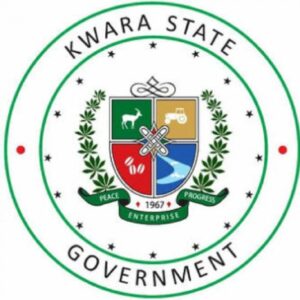
FG plans framework for robust response to end HIV by 2030 — Minister
The Federal Government on Friday in Abuja says the National HIV/AIDS Multi-Sectoral Response Plan is its framework for a robust response to end HIV by 2030.
The Minister of Women Affairs, Mrs Pauline Tallen, disclosed this at the closing ceremony of Gender Based Violence (GBV) and Stigma Reduction Training and Advocacy Workshop for Association of Women and Girls Living with HIV in Nigeria (ASWHAN).
The workshop was organised by the UNWomen, in collaboration with National Agency for the Control of AIDS (NACA), Federal Ministry of Women Affairs, UNAIDS, UNESCO and other partners.
Tallen, represented by Mrs Funke Oladipo, the Head of Women Development Department in the ministry, explained that the Federal Government planned to reduce infection rate and improve the quality of lives of people living with the virus.
The minister said that the ministry was committed to improved awareness that would further enlighten the populace on the effects of stigma against HIV positive individuals.
She urged the media to join hands in the crusade to declare zero tolerance against rape, stigmatisation and discrimination against women living with the virus and other forms of GBV.
According to her, past administrations have made laws that will protect people living with HIV and faced with unjust behaviours.
She said “I hereby encourage women living with HIV to be knowledgeable about their rights and seek for justice when intimidated.
“As you may be aware, the present administration of President Muhammadu Buhari has zero tolerance for perpetrators of GBV and stigmatisers through VAPP Act to ensure victims get justice.”
Tallen, therefore, commended the UNWomen, Ministries, Departments and Agencies (MDAs) and Spotlight Initiative partners for coming up with strategies to tackle the daily challenges faced by women and girls living with HIV during COVID-19 lockdown.
Tallen said “I also commend the partners for complementing Federal Government’s efforts toward empowering these women that are voiceless in Nigeria.
“I believe this workshop will impact participants to improve their self-worth and contribute their quarter to national growth.”
The Director-General of NACA, Dr Gambo Aliyu, in a goodwill message, said the Nigerian HIV/AIDS Indicator and Impact Survey (NAIIS, 2019) shows a 1.5 per cent HIV prevalence among adults between 15-64 years.
He emphasised that focusing on gender issues was central to reducing infection rates and improving quality of life for those living with and affected by HIV and AIDS.
He added that “this requires leadership and coordination and meeting the resource challenges for ending violence against women, leveraging on existing structures to scale up the gains to the entire national HIV and AIDS response.
“With the support of partners, NACA had carried out multiple interventions with and for ASWHAN and other vulnerable groups.
“Noteworthy is the development of policy documents, frameworks, plans, guidelines and manuals aimed at tackling HIV-related stigma and discrimination at all levels and guiding access to justice for the violated.”
The NACA boss, therefore, commended the efforts of the UN toward building partnerships and alliances for the cause and work across all sectors in a comprehensive manner.
Mr Tony Ojukwu, the Executive Secretary, National Human Rights Commission (NHRC), said the Federal Government had shown leadership toward preventing the spread of HIV and protecting the rights of women and girls living with HIV.
This, he said, the government did by establishing national institutions like NACA and NHRC, mandated with specific goals to achieve.
He said “I believe the responsibility to reduce GBV and stigma is a shared one, although the primary burden rests with government.
“The cooperative engagement of UNWomen, UNAIDS, UNESCO, FMWASD and all actors, as well as policy makers is necessary to support government in securing and protecting our women and girls.
“The prevention efforts range from legal empowerment, civic education and advocacy programmes to early warning systems and training of community observers to protect vulnerable women and girls.
“The NHRC is committed to the protection of the rights of women and girls and has put a lot of measures in place to prioritise the rights of persons living with HIV/AIDS.
“We have established a thematic department on women rights and another department for vulnerable groups, aimed at deepening the protection of their rights.”
Ms Comfort Lamptey, the Country Representative, UNWomen Nigeria and ECOWAS, said the new Global AIDS Strategy (2021–2026) aim to close inequalities that drive the AIDS epidemic and put people at the centre to get the world on track to end AIDS.
According to her, the new bold strategy sets out a framework for transformative action to overturn these inequalities by 2025 and to get every country and every community on track to end AIDS by 2030.
She explained that the strategy was to unite countries, communities and partners across and beyond the HIV response to take prioritised, transformative actions to accelerate progress toward the vision of Zero New HIV Infections, Zero Discrimination and Zero AIDS-related deaths.
She noted that “decades of experience and evidence from the HIV response shows that intersecting inequalities are preventing progress to ending AIDS as a public health threat by 2030.
“In Nigeria, gender inequalities and low socio-economic status of women and girls continue to fuel women susceptibility to HIV infection, GBV, stigma and discrimination and other forms of abuse.
“Women living with HIV/AIDS face multiple forms of discrimination, stigma and discrimination because of their status.
“It is against this background that UNWomen Nigeria partnership initaitive — Enhancing Institutional and Technical Capacity for Women and Girls Living with HIV for More Inclusive and Sustainable HIV Response in Nigeria (EITC) Programme was designed and being implemented.
“Key interventions in the programme includes support for ASWHAN members to develop a five-year strategic note and funding plan to focus and effectively reposition the association to better response to new and emerging infections.
“It will also roll out various capacity building activities to strengthen the association and her members to engage and influence change,’’ she said.
Dr Omokhudu Idogho, the Managing Director, Society for family Health (SFH), said the organiaation had been working on issues affecting persons living with HIV in 19 states.
Idogho, who said SFH was pleased to work with ASWHAN, promised more collaboration and support for the association.



